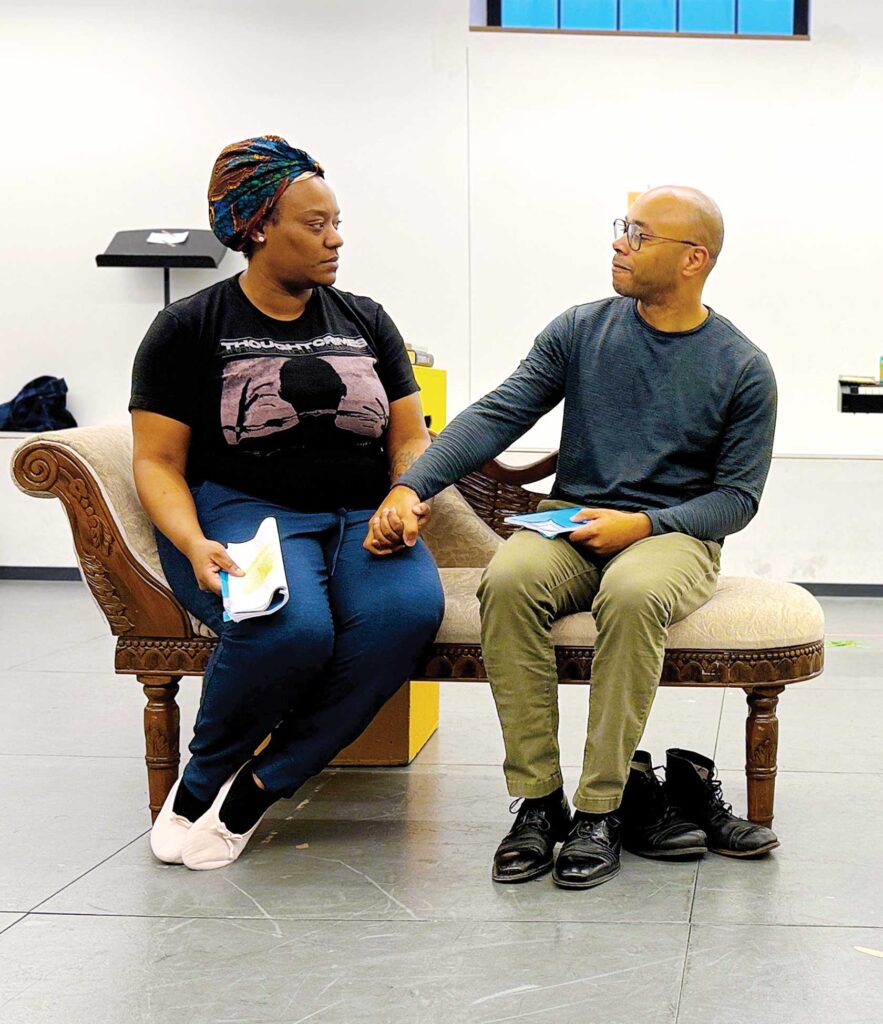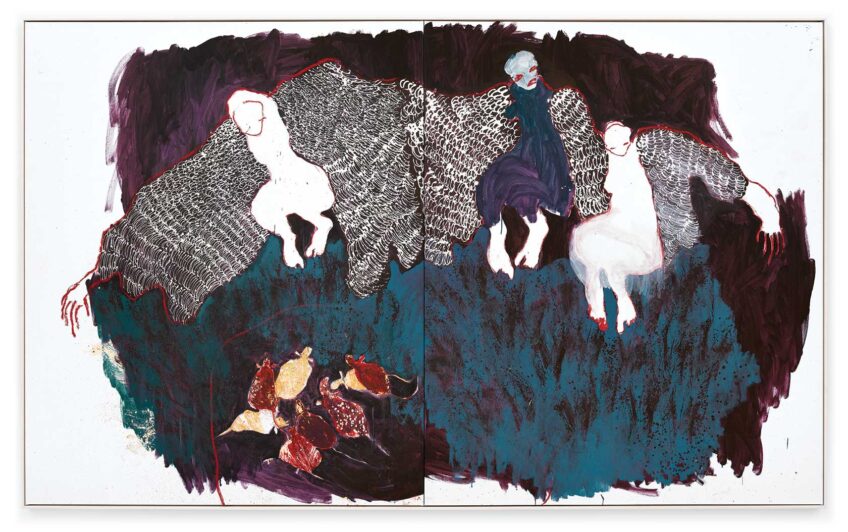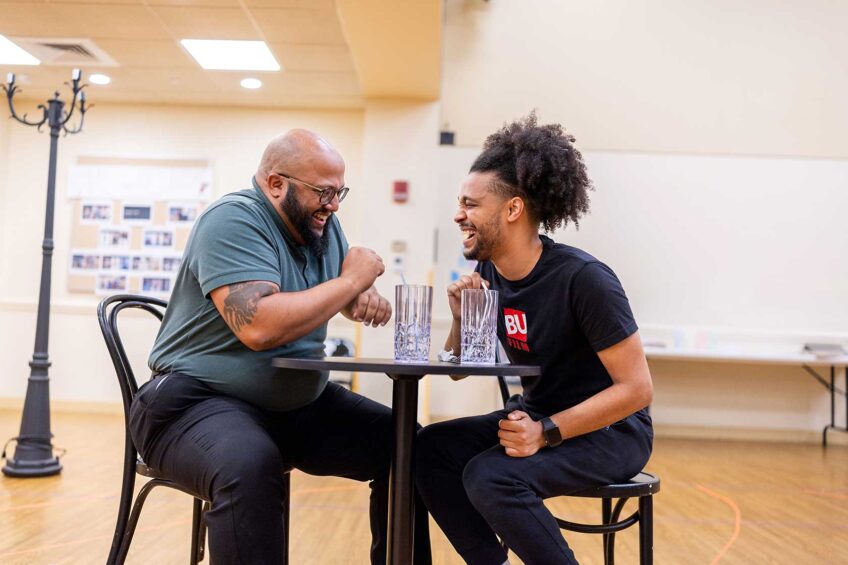Actors’ Shakespeare Project tackles loss and light with August Wilson’s ‘The Piano Lesson’

Banner Arts & Culture Sponsored by Cruz Companies

Through his iconic American Century Cycle, a collection of 10 plays sometimes called The Pittsburgh Cycle, Wilson touched on various corners of the African diasporic experience: the American Dream and Black people’s relationship to it, slavery, Black artistry, exploitation, and what it meant to be a Black woman or man in the 20th century.
“My take on them is that they deal…hope for a better place but without pulling any punches about…some of the stuff that’s gone down now,” said Chris Edwards, artistic director of Actors’ Shakespeare Project. “He doesn’t intend to write them an exposé or historical account, but just from very personal places of character wants and needs in relationship.”
Actors’ Shakespeare Project has previously performed two plays from Wilson’s American Century Cycle. Now, the company will lean into the theme of hope as it takes on the fourth play in the collection, “The Piano Lesson,” from Jan. 23 to Feb. 23 at Hibernian Hall on Dudley Street in Roxbury.
The Pulitzer Prize-winning play follows a family in 1930s Pittsburgh as they grapple with whether to sell the ancestral piano in their possession. At the heart of it, it’s a play about being haunted by the specters of slavery, sharecropping, and the prison system in the South, Edwards said. Generational trauma is prevalent in the work, and Edwards had to decide whether to spotlight it or pull on another thread. He opted for the latter, choosing to focus on how characters deal with the trauma they face.
“The thing that I find most compelling about all of August Wilson’s plays is that the characters…move through these places of pain, hurt, and they allow themselves to find what helps them to survive through that,” he said. “I think humor, love and hope help the characters do that.”
In some ways, this choice to emphasize the lighter elements of the play was made from necessity. When deciding what to stage next, Edwards considers what feels right based on the other plays the company is performing and “some of the themes that are sort of popping out in the world right now.”

Jade Guerra plays Berniece in the Actors’ Shakespeare Project production of August Wilson’s “The Piano Lesson.” PHOTO: Shaun Morse/Fire in the Eyes Photography
Given where the country is now, a place characterized by the “erasure of Black history,” “The Piano Lesson,” which asks how to move forward with your legacy, “just felt right,” he said. Simultaneously, in the face of such challenges, “humor, love and hope” are imperative, both in life and in the world of “The Piano Lesson.” Actors’ Shakespeare Project’s staging of the play doesn’t ignore the trauma-inducing moments but emphasizes levity.
For Jade Guerra, an actor from Hyde Park, the play’s multifaceted nature and that of its characters is its strength. Guerra, 41, will play Berniece, a 35-year-old mother who refuses to sell the family piano. Berniece, Guerra said, is strong-willed, and while she sometimes gets angry, she exhibits a range of emotions.
The role of Berniece will be Guerra’s first principal part with Actors’ Shakespeare Project since she joined the company in 2019. Portraying Berniece is “a little daunting,” Guerra admitted, “but also really exciting.”
“I love telling a story. I love embodying someone who might have some similarities to me but generally is a little or a lot different,” she said. “So, you get to be someone that you would not be in the real world probably.”
Guerra began acting in elementary school and continued throughout high school and college, bolstered by friends who let her be “creative and goofy.” She has performed in “The Taming of the Shrew,” “Miracle on 34th Street” and “King Lear,” among others, bringing audiences into new worlds.
With “The Piano Lesson,” Guerra said she wants spectators to see that everyone has challenges and even when conflict occurs, “find ways to love folks” because we are all after the same thing: “Everyone’s trying to get in touch a little bit with their ancestors.”






